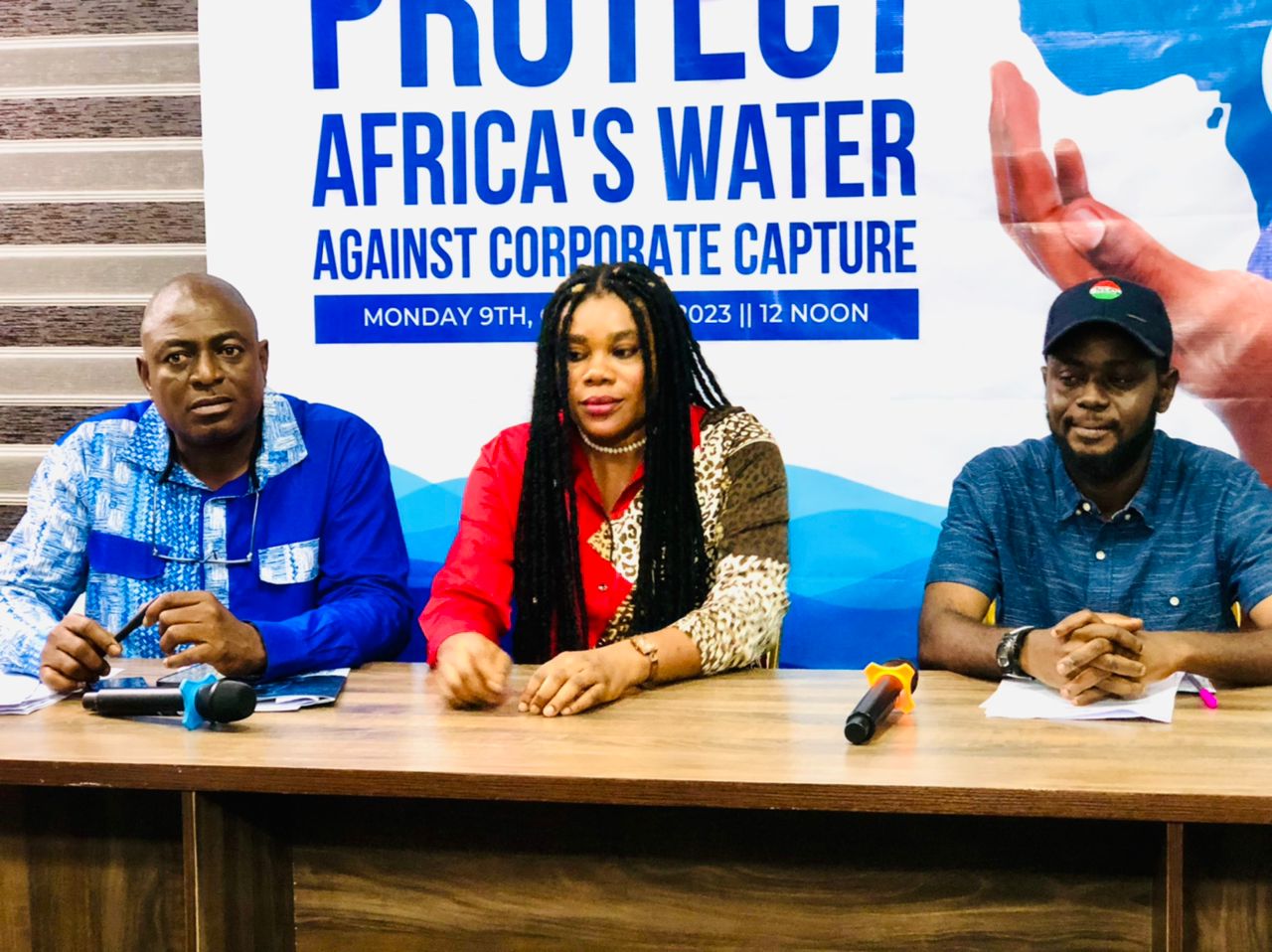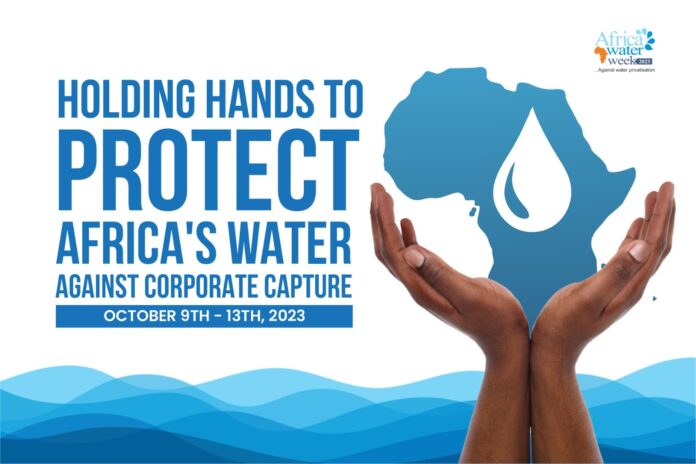A coalition of civil society organizations, labor unions, and activists across Africa has kicked against the commercialization of water in Africa to corporate firms whose act is to glean maximum profit at the expense of the general public.
They made the disclosure at a joint press conference Lagos scheduled to mark this year’s Africa Week of Action Against Water Privatization with the theme; Holding Hands to Protect Africa’s Water from Corporate Capture.
The groups urged African leaders across boards to defend the right to water and emphatically reject privatization schemes by these world financial organizations.
Speaking at the event, Campaign Director at Corporate Accountability, Neil Gupta, accused Western powers, IMF and World Bank of being the sole beneficiaries of water privatization in Africa.
Gupta lamented that water which is essential for all life, has now become an entire industry where investors exploit ‘our need for water to profit.’

According to him, multi-billion dollar corporations and their wealthy shareholders, mostly based in the global north (Western Europe and America), have made riches from privatizing community water systems across the globe.
He listed the largest water privatizers in the world to be French corporations, including Violia and Suez which rake in billions of dollars in revenue from their water business every year to pay their shareholders.
He said the World Bank even directly invests in water-privatizing corporations, tying its financial interests to those of the corporation rather than the people
“Now the World Bank uses pretty much every tool at its disposal to promote water privatization, from loans geared towards setting up systems for corporate control, to policies that push austerity and privatization at the expense of communities and the planet.
“And this year the British Government entered a partnership with the Private Water Corporation called Mittido to create a new company that’s focused explicitly on expanding water privatization across the continent.
“And the World Bank’s International Finance Corporation, or Ifc is already a direct shareholder in Mittido. Meaning that their interests are aligned with the profitability of the corporation, not the benefit of the people,” Gupta said.
In his own address, the executive director at Corporate Accountability and Public Participation (CAPPA), Akinbode Oluwafemi, said those rights of people are being taken over by corporations.
“Right to life, right to water, right to education. Even our right to elect the kind of leaders that we want is gradually been taken from us by corporations,”
He said the story all over Africa is the same, which is the lack of access to water. Meanwhile, “Water is not a commodity to be traded, bartered or sold to the highest bidder.,
According to Akinbode, the strategy deployed by water privatizers is to create conditions of lack. “And when people don’t have access, whatever is thrown at us, we take. That is the narrative they are pushing that for us to have water, it has to be privatized. We said no,” he said.
The project coordinator at Public Service International, Fatou Diouf, who joined via Zoom, reiterate the push of Public Private Partnership (PPP) in Africa through the World Bank and Structural Adjustment Programme in the late 80s and 90s was the worst thing that ever happened to the continent.
“The concept and modalities of its work were never clearly understood. But for the propaganda that public services not only water management, would not be managed efficiently, hence the need to introduce the business model into the management of the public sector. This opens the floodgates to the provision of public goods by profiteers, turning public goods into commercial services.”
Another activist, Kete Fumo, for Justica Ambiental JA, who joined via Zoom from Mozambique, said the water privatization in the Southern African country failed to guarantee water supply to most homes.
“In Africa as everywhere in the world water is a strategic commodity. It’s therefore essential and indispensable for the survival of human beings on earth. Any government that privatises this essential resource endangers the lives of the populations it is supposed to protecting Cameroon, the government which for ten years experimented with the privatisation of public drinking water service has just made the progressive decision to adopt the option of renationalization of the water company (CAMWATER Utilities Corporation),” said Chief Godson Ewoukem, Executive President of SYNATEEC trade-union Cameroon.
“One voice for water access is a voice for millions of thirsty mouths without a voice,” said Geoffrey Kabutey Ocansey, Convener, Water Citizens Network, Ghana.
Sandra Ndang, African Center for Advocacy Cameroon, said, “The planet is in a state of emergency and privatising water would result in further aggravating the crises we are facing particularly in our continent. Water is a common goods fundamental human right which should never be privatized for profit.”
Other speakers at the media event includes: Policy and Research Officer CAPPA, Zikora Ibeh, Abiodun Bakare, for Almagamated Union of Public Corporation, Technical, Recreational and Employee Services AUPCTRE Nigeria, Anjola Jesu Fatuase, Digital Manager CAPPA, and Leonard Shang-Quartey, coodinator, Africa Water Justice Network.








